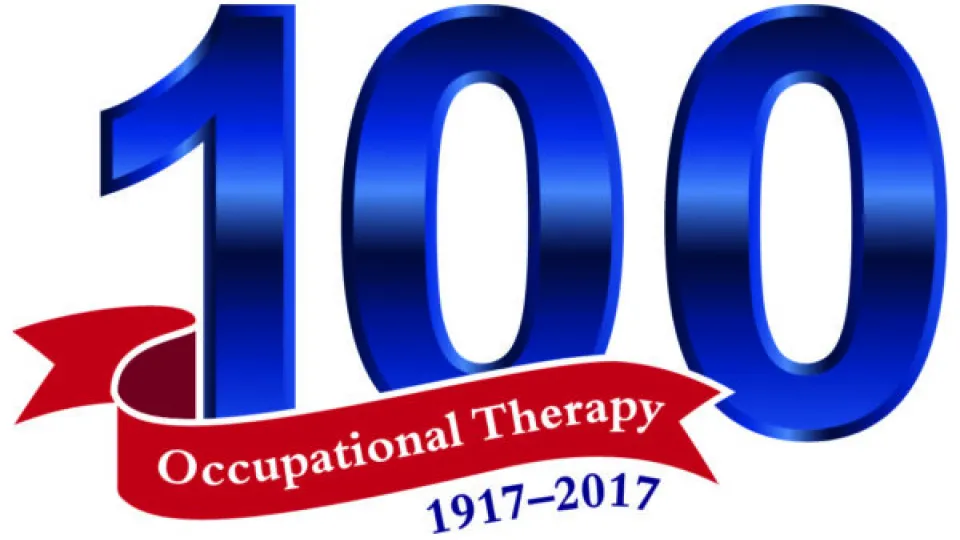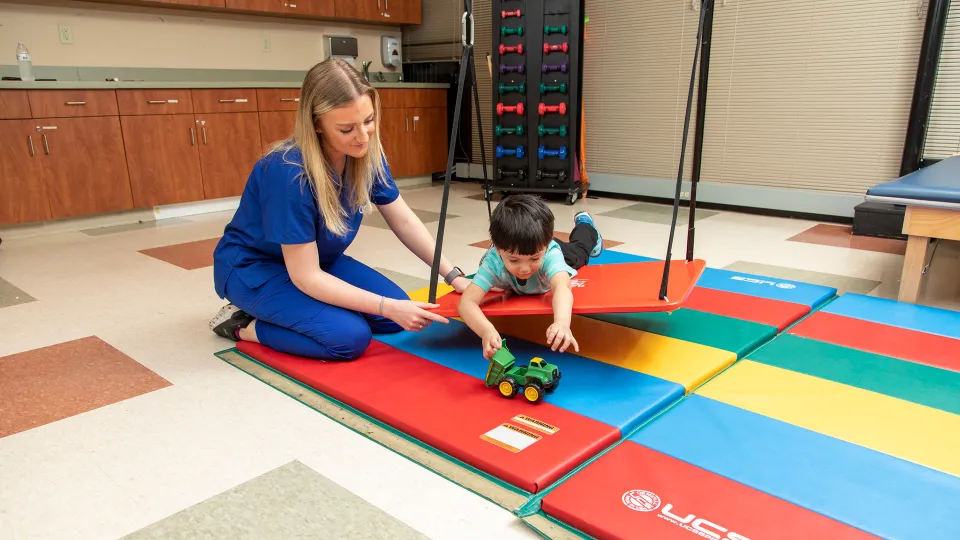
April is Occupational Therapy Month! Occupational therapy professionals support an improved quality of life for those who face daily physical challenges due to injury, illness or other condition.
Occupational Therapy Assistants work under the direction of an Occupational Therapist to directly carry out therapy plans with patients.
We thought it would be nice to look at some of the more important moments that have occurred since the turn of the century (the 2000s century) in occupational therapy.
With the help of American Occupational Therapy Association (AOTA) centennial website, we have gathered the top 10 of the more recent events. Let's check out what has happened since the millennium began.
Top 10 Occupational Therapy Events Since 2000
2000- ASCOTA changes its name to the Association of Student Delegates (ASD). Occupational therapy is recognized as a core discipline for working with persons with genetic conditions on the basis of NIH funding.
2002- AOTA adopts the Occupational Therapy Practice Framework: Domain and Process to replace Uniform Terminology. The Association pilots a 10-state Listserv, the Evolution of Communication, to keep members up-to-date on issues important to the profession. AOTA Press becomes the Association's publishing brand. The Fund to Promote Awareness of Occupational Therapy is established.
2004- The Consolidated Appropriations Act of 2004 (P.L. 108-199) allocates a small amount for training in research-based interventions for patients and caregivers dealing with Alzheimer's disease, including occupational therapy. The Individuals with Disabilities Education Improvement Act (P.L. 108-446) continues support for occupational therapy provided by qualified practitioners.
2005- AOTA and ACOTE sign a memorandum of understanding, giving ACOTE "unfettered autonomy for establishing standards for educational programs."
2006- AOTA adopts the Centennial Vision, which states that "We envision that occupational therapy is a powerful, widely recognized, science-driven, and evidence-based profession with a globally connected and diverse workforce meeting society's occupational needs."
2008- The revised ACOTE standards include criteria for entry-level doctoral-degree programs and entry-level master's degree programs for OTs. AOTA adopts the Occupational Therapy Practice Framework, 2nd Edition.
2010- The Patient Protection and Affordable Care Act (P.L. 111-148) passes requirements for certain insurance plans to cover rehabilitation and habilitation, the habilitation clause resulting from AOTA's lobbying efforts.
2014- With licensure passage in Hawaii, OT licensure is achieved in all 50 states and 3 jurisdictions. Implementation of the Excellence in Mental Health Act results in the inclusion of occupational therapy as one of the professions that can be covered by the new Certified Community Behavioral Health Centers.
Occupational therapy is included in SAMHSA's Primary Behavioral Health Integration Grants. AOTA adopts the Occupational Therapy Practice Framework, 3rd Edition.
v2015- New York state passes OTA licensure, achieving licensure this in all 50 states and 3 jurisdictions. AOTA adopts the Distinct Value statement: "Occupational therapy's distinct value is to improve health and quality of life through facilitating participation and engagement in occupations, the meaningful, necessary, and familiar activities of everyday life.
Occupational therapy is client-centered, achieves positive outcomes, and is cost-effective." The Every Student Succeeds Act (P.L. 114-95) establishes the term specialized instructional support personnel (SISP), which includes occupational therapy.
2016- An independent study by health policy researchers (Rogers, Bai, Lavin, & Anderson) published in Medical Care Research and Review finds that "occupational therapy is the only spending category where additional spending has a statistically significant association with lower readmission rates" in hospitals for the three health conditions studied.
AOTA adopts Vision 2025: "Occupational therapy maximizes health, well-being, and quality of life for all people, populations, and communities through effective solutions that facilitate participation in everyday living." AOTA attains the membership high milestone of 60,000 members; membership in 1917 was 40.
Bonus Event
2017- AOTA celebrates 100 years of the association and the OT profession! For this special centennial event, the AOTA launched a special "Celebrating 100" website that ways to get involved, take quizzes, share your photos, watch videos, read interviews and more.
While this is one of the bigger events that has occurred since the turn of the century, it's really the celebration and culmination of all the events that have helped make OT what it is today.
Become an Occupational Therapy Assistant

How To Become an Occupational Therapy Assistant
If learning more about the history of occupational therapy has made you want to become an Occupational Therapy Assistant, Concorde Career College has the program that may be right for you. Contact us to get started on a new and exciting health care career!
Interested In How To Become an Occupational Therapy Assistant?
Click here to explore Occupational Therapy Assistant Programs near you!
Take The Next Step Towards a Brighter Future
Interested in learning more about our Occupational Therapy Assistant program?
We have a Concorde representative ready to talk about what matters most to you. Get answers about start dates, curriculum, financial aid, scholarships and more!







